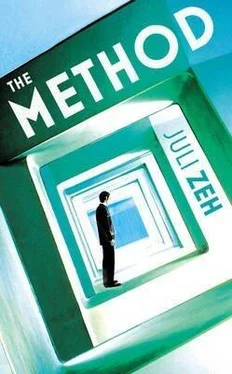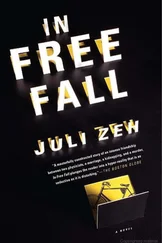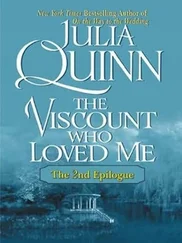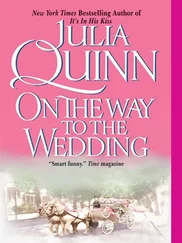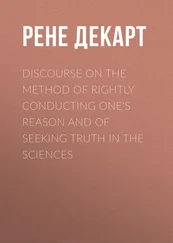‘You still don’t get it, do you? He’s publicly accusing Moritz of terrorism and he cited you by name. You’re not anonymous any more. You need to do something!’
‘On the contrary,’ says Mia. ‘While I’m here, racking up virtual kilometres on an exercise bike, the world is turning around me, spinning backwards and forwards towards an unknown goal. The situation is bad enough without my doing something.’
‘You want everything to be harmless, don’t you, Mia? Your brother was just a big kid; Kramer is a starry-eyed dreamer. And you’re a perfectly innocent citizen on a stationary bike. The fact is, you’re a coward. All your rationalising, your pros and cons, your knowing better and knowing best serves a single purpose: it gives you licence to shrug your shoulders for the rest of your life.’
‘Nobody ever died from a shrug of the shoulders, but the world has gone under on countless occasions because of heroism, martyrdom and ideas. Would you rather I leaned out of the window, proclaimed a revolution and called for Kramer’s head?’
‘You could give it a try.’
‘Enough!’ It is clear from Mia’s tone that she is furious. ‘I’m sick of your empty words!’
‘Empty words?’ The ideal inamorata almost chokes and has to take a few breaths to calm herself down. ‘How’s this for substance? Step one — you accept that Moritz was a victim of the Method and your friend Kramer was involved. Step two — you repeat after me: The Method demonstrated its fundamental injustice by killing my brother. Step three — you call Rosentreter. Step four — you sue Kramer for libel. Step five — you find an open-minded journalist and set the story—’
‘Wow,’ says Mia sarcastically. ‘Heinrich Kramer must be shaking in his boots. What a stunning plan, my beloved inamorata. It combines the pointlessness of human endeavour with the absurdity of bothering to try.’
‘Listen to yourself. You’re picking holes in the final stages of the strategy before you’ve considered steps one and two. You’re scared, Mia Holl. Go ahead and take the first two steps, stick up for your brother. Then it won’t seem so absurd.’
Mia is cut to the quick. Sometimes a person can be right in such a fundamental way that an answer is superfluous. It puts an end to the never-ending cycle of on-the-one-hand, on-the-other-hand. It ushers in an almost blissful calm. Mia looks at the pedals and watches her feet going up and down. For a few seconds, she thinks of nothing.
‘Do you know what a hægtesse is, Mia?’
Mia looks up in surprise. It takes an effort of concentration to focus on the unknown word.
‘It’s an old term for witch,’ says the ideal inamorata.
‘A witch,’ echoes Mia. ‘Witches rode broomsticks. They were hunchbacked old hags who ended up in the oven or being burnt at the stake.’
‘Hægtesse derives from the same word as hedge. A witch is a hedge spirit. She doesn’t ride a broomstick, she rides the hedge.’
‘Why are you telling me this?’
‘The hedge is a boundary, Mia. A witch rides the boundary between the civilised world and the wild world beyond. She straddles this world and the next, life and death, body and mind. She rides the line between yes and no, faith and atheism. She doesn’t take sides; the between is her realm. Does that remind you of anyone?’
Mia doesn’t reply. She gets off the bike and walks to the window. Outside, a bird is fluttering around the flowerpots, pecking disappointedly at the artificial flowers. It looks at Mia reproachfully before flying away.
‘People who don’t take sides,’ says the ideal inamorata, ‘are outsiders. And outsiders live dangerously. Every now and then the authorities like to demonstrate their power by making an example. It happens a lot when people are losing faith. Outsiders are good targets because they don’t know what they want. They hang on a silken thread, ready to fall.’
‘I’m not an outsider,’ says Mia weakly.
‘Deep down you don’t see the point of spending time with other people. As far as I’m aware, you’ve only made two exceptions, one of whom is dead and the other your enemy. It’s enough to make you not belong.’
The outer Mia frowns and pretends not to follow, while the inner Mia accepts that the ideal inamorata is right. She understands the seriousness of the problem. The Method is based on the health of its citizens, and health is the norm. But what is normal? Normal is that which already exists, the prevailing condition. But normal is also normative — an expectation, the thing to be wished for. The norm is a double-edged sword. A person can be measured against that which exists, in which case she will be found to be normal and healthy, therefore good. Or a person can be measured against an expectation and found to be wanting. The norm can be changed at will. For those on the inside, the double-edged sword is a defensive weapon. For outsiders, it’s a terrifying threat. It has the power to make you ill.
When Mia enters a public space — a department store, a high-speed train, her place of work or any other shared area — she never has the feeling that she is coming home. She doesn’t burst through the door, shout ‘hello’, clap everyone on the shoulder and sit herself down on the comfiest chair. Most of the time she tries to go unnoticed. Some days she listens at the door to make quite certain before leaving the apartment that no one is outside. She needs time and space for herself and her thoughts. After work, she goes home instead of joining in with group activities. In the evening, she would rather sit on her stationary bike than on the management board of a local sports club. She talks to an invisible woman, not a best friend or a husband.
The ideal inamorata is trying to suggest that Mia is exactly like Moritz, save in one regard: Mia hides her difference by conforming to the system, whereas Moritz wore it like a badge. No one would ever describe Mia as ‘abnormal’, but no one calls her ‘normal’ either. She rides the hedge.
‘Are you trying to warn me?’ she asks.
The ideal inamorata nods wordlessly.
‘It’s sweet of you,’ says Mia, ‘but there’s really no need. I’m not naive enough to think we can choose our place in life. At most we bring the nails and timber; others build the frame.’
‘There’s always a decision to be made,’ says the ideal inamorata. ‘Do you want to be a perpetrator — or a victim?’
Mia’s answer makes the ideal inamorata bury her head in her hands despairingly.
‘I find both options decidedly unappealing,’ she says.
‘OF COURSE THEY’RE unappealing,’ said Moritz. ‘That’s why I’ve decided to be neither. It’s a principle of mine.’
They were sitting by the river, Mia with her shoes and socks off and her trousers rolled up to the knees, which was her way of saying she was sorry. Their feet dangled casually in the water.
‘By the way,’ said Moritz, poking her gently in the ribs, ‘I heard what you said last night when I was leaving.’
‘That I’m your home?’
The rod dropped to the ground as Moritz grabbed Mia and hugged her tightly, so tightly she almost vanished in his embrace. It is humankind’s greatest curse that the happiest moments in life can only be identified when they are over.
‘Are you dealing with it all right?’ asked Mia when he finally let go.
‘I think so. You don’t spend half your life studying philosophy only to be caught out by the phenomenon of death.’
Moritz raised a professorial index finger and assumed an expression that was probably supposed to convey that the old Moritz Holl had returned.
‘We come from darkness and return to darkness. In between lie the experiences of life. But the beginning and the end, birth and death, we do not experience; they have no subjective character, they fall entirely in the category of objective events. And that’s that,’ he recited.
Читать дальше
